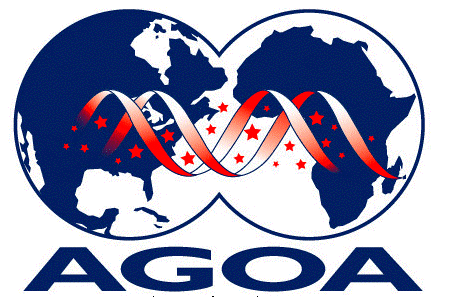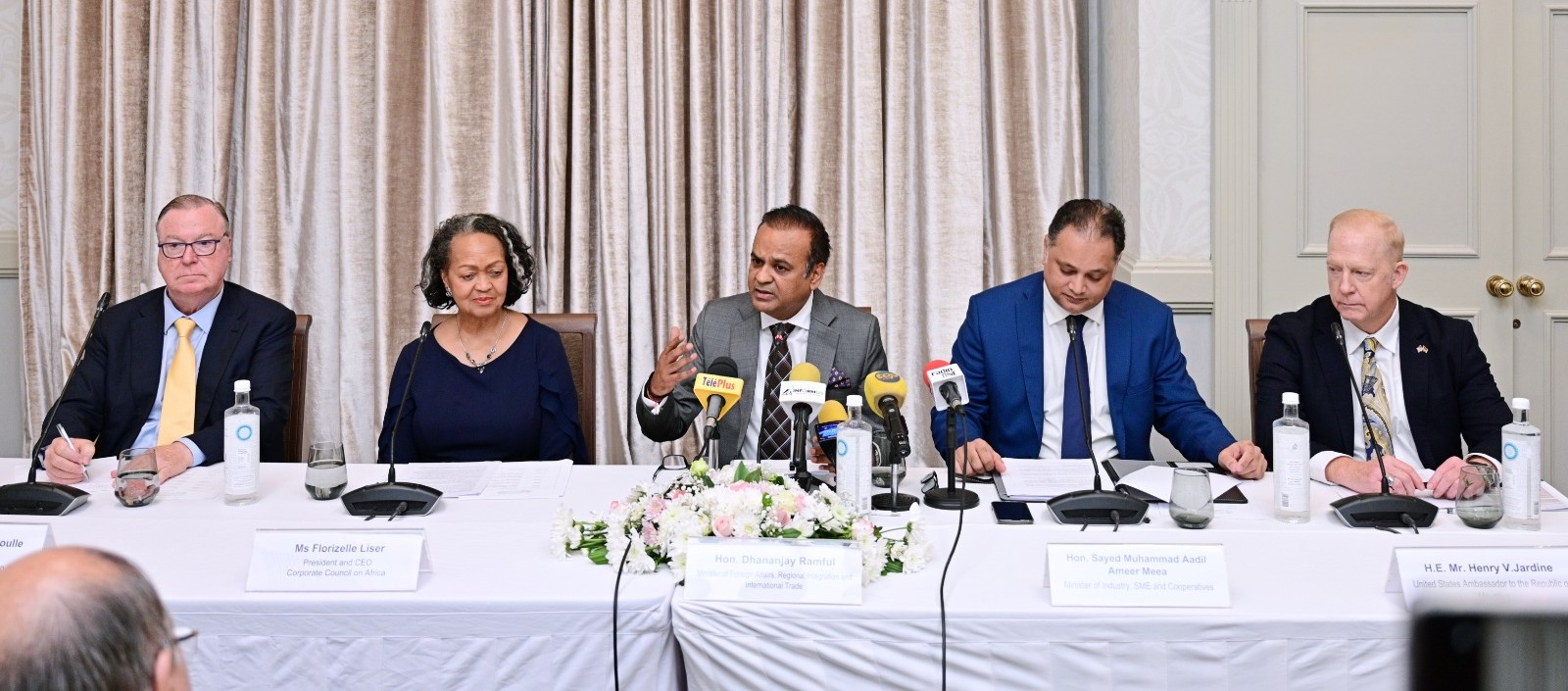President's Message - March/April 2020
By Florie LiserWhat a difference two months has made. In my last President’s message at the end of February, I flagged the reasons to cheer Africa’s economic outlook and the positive momentum in the U.S.-Africa relationship. I hoped to welcome you all to the U.S.-Africa Business Summit in Morocco. Two months ago, coronavirus wasn’t on most of our screens; today it’s almost all we can think about.I hope you are staying healthy and safe. COVID-19 has impacted all of our lives and fundamentally shifted how we work at CCA, but it has not changed our mission. Like many of you, we are teleworking and, as I shared in my April 14 message, we had to postpone the U.S.-Africa Business Summit which would have happened in Marrakech in June. But we have transitioned to a new way to serve CCA’s members and stakeholders. We launched a new webinar series “Navigating the Impact of COVID-19” to help maintain and even enhance the dialogue between the private sector, multilateral agencies and U.S. and African governments during a period when we need collaboration more than ever.The Challenges are HugeThe webinars have highlighted many of the tremendous challenges facing Africa in the face of COVID-19. As of this writing, the continent has over 40,000 COVID-19 cases, reporting over 1,800 related deaths. Egypt, Algeria and South Africa have been worst hit but no country in Africa is spared. While these numbers are nowhere as high as in the United States or many other parts of the world, there is significant concern that African countries could be affected worse than other nations due in part to the fragility of their health systems. With the difficulty of social distancing in economies with large informal sectors and socially close communities, UNECA warns that the potential death toll in Africa from COVID-19 could exceed 300,000.Beyond the health impact, COVID-19 has already put African economies under severe strain. The World Bank’s prediction for GDP growth on the continent dropped from 2.4 percent in 2019 to -5.1 percent in 2020. Many countries are in some degree of lockdown and this is choking trade and costing jobs. Oil prices are lower than they’ve been in decades, declines in demand for other African commodities, the near total collapse of tourism and other sources of revenue and liquidity for many African nations are at the center of discussions at the African Union (AU) and among Heads of State, and are driving a concerted African appeal to global leaders and partners for collaboration and assistance. Such assistance is needed when one considers the already pervasive poverty, food insecurity, lack of capacity and high debt levels in African nations.The Response Is EncouragingDespite this grim picture, Africans are meeting the crisis with courage, resolve and ingenuity. Many African governments took quick and decisive action early on to fight the spread of COVID-19 that may ultimately mean a much lower spread and death toll from COVID-19 on the continent. In one of the worst hit countries, South Africa, the government is beginning to ease restrictions after a five-week-long strict lockdown, and it announced a $26 million stimulus package. The African Union (AU) is coordinating a continent-wide effort that addresses the health and economic impact of the pandemic, and has named four Special Envoys to help mobilize African and global resources to combat COVID-19. The African Centers for Disease Control (CDC) has prioritized testing and health sector support, as its director, Dr. John Nkengasong, told us in a joint CCA/Chamber of Commerce webinar. And during a CCA webinar just a few days ago Dr. Muhammed Ali Pate, the World Bank’s Global Director for Health, Nutrition and Populations described the World Bank $160 billion package of programs being rolled out over the next 15 months. This includes the International Finance Corporation’s $8 billion facility.The international community is stepping up to help meet Africa’s significantly increased financial needs as a result of COVID-19, which African leaders estimate could exceed $100 billion. As President of the African Development Bank Dr.AkinwumiAdesina outlined in CCA’s new webinar series, the Bank’s $10 billion facility will be used to support both African governments as well as the private sector. The African Export-Import Bank (Afreximbank) has set up a $3 billion credit facility. We look forward to hosting Dr. Benedict Oramah, Afreximbank’s President, later in May as well as the President of the Trade and Development Bank (Admassu Tadesse) in June to share what those institutions are doing.I was pleased to see that the U.S. government has responded with $178 million in additional COVID-19 assistance to Africa and that President Trump called the presidents of South Africa and Kenya to offer help. The U.S. government continues to use all the tools at its disposal to carry forward its engagement with Africa. U.S. Export-Import Bank Chairman Kimberly Reed explained in our inaugural webinar how EXIM has adapted its programs and created new flexibilities to help U.S. exports during this crisis. EXIM has $8.8 billion of exposure in Africa and has a new program to support exports that compete with China. Similarly, the Executive Vice President of the U.S. International Development Finance Corporation (DFC), Edward Burrier, explained to our members that his agency continues to operate and support development projects important to African economies. The DFC has $60 billion in capital for loans, equity investments, technical assistance and new flexibilities globally.U.S. companies are also playing an important role in countering COVID-19 in Africa and globally. Many of CCA’s U.S. member companies, including in the health sector, have contributed millions of dollars and are developing medications and vaccines, and providing PPE and ventilators.CCA’s African members are responding as well.Dangote Group, Zenith Bank and Standard Bank, for example, have given hundreds of millions of dollars to counter COVID-19.A Call to ActionClearly more needs to be done. This is a time for bold action to avoid potential disaster. I applaud the G-20 decision to suspend bilateral debt service payments until the end of the year for eligible low-income countries, including 40 in Africa. Similarly, the IMF approved six months of debt service relief for 25 low income countries, including 19 in Africa. This is a good start, but Africa urgently needs other forms of debt relief. We must support the most vulnerable populations, including refugees, migrants and internally displace persons. African governments and their international partners need to prioritize health sectors and health security, which has been historically underfunded on the continent. This is a time to diversify supply chains, shore up logistics to ensure adequate food supplies, and seize with new vigor the opportunities provided by ICT and advanced technologies to build resilience and innovate.More international donor support will be needed and an increased focus on public-private partnerships. More than ever, countries need the private sector to provide financing, deliver solutions, create jobs and help recovery. U.S. companies stand ready to be strong partners as Africa works through the current challenges.And perhaps more than anything, this is a time to renew our common commitment to each other. As President Adesina so eloquently put it, “our collective humanity is at stake.” In an April 14 open letter published in the Financial Times, 18 African and European leaders urged that “only a global victory that fully includes Africa can bring this pandemic to an end.” CCA has always supported global collaboration, with members and partners in the United States and all across Africa as well as extensive networks around the world. Trade and business depend on global interconnectivity. Over the past year, I’ve written with concern about some global trends in the opposite direction that have been raising barriers and pulling away from global approaches. COVID-19 has reminded us that global cooperation, in Africa and elsewhere, is critical to our future.CCA will do all it can to help. More than ever, I appreciate our members and partners, and my CCA team that is making the most out of an extremely difficult time. We will get through this together.All the very best to you, your families, and colleagues,Florie LiserPresident and CEO, CCA



